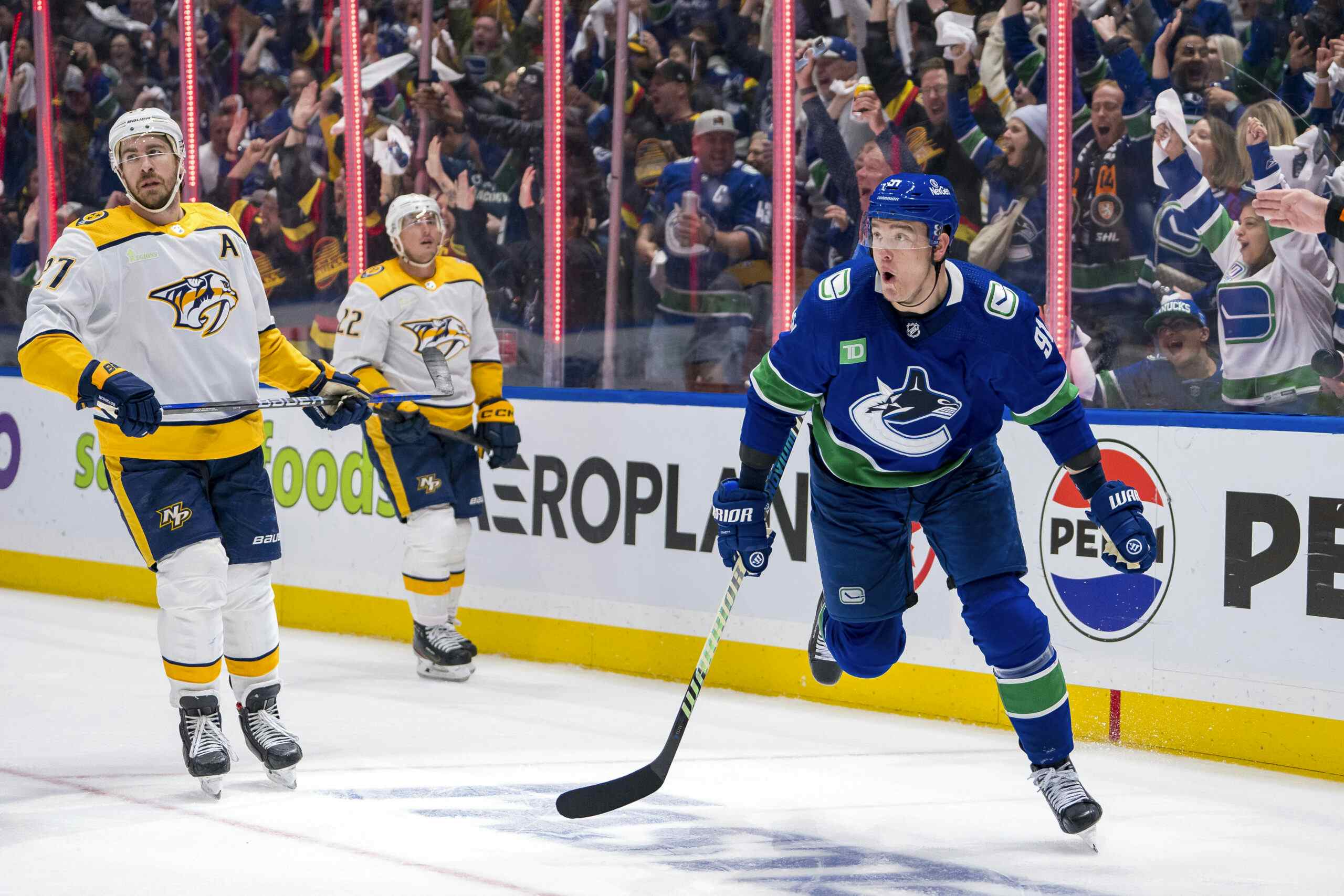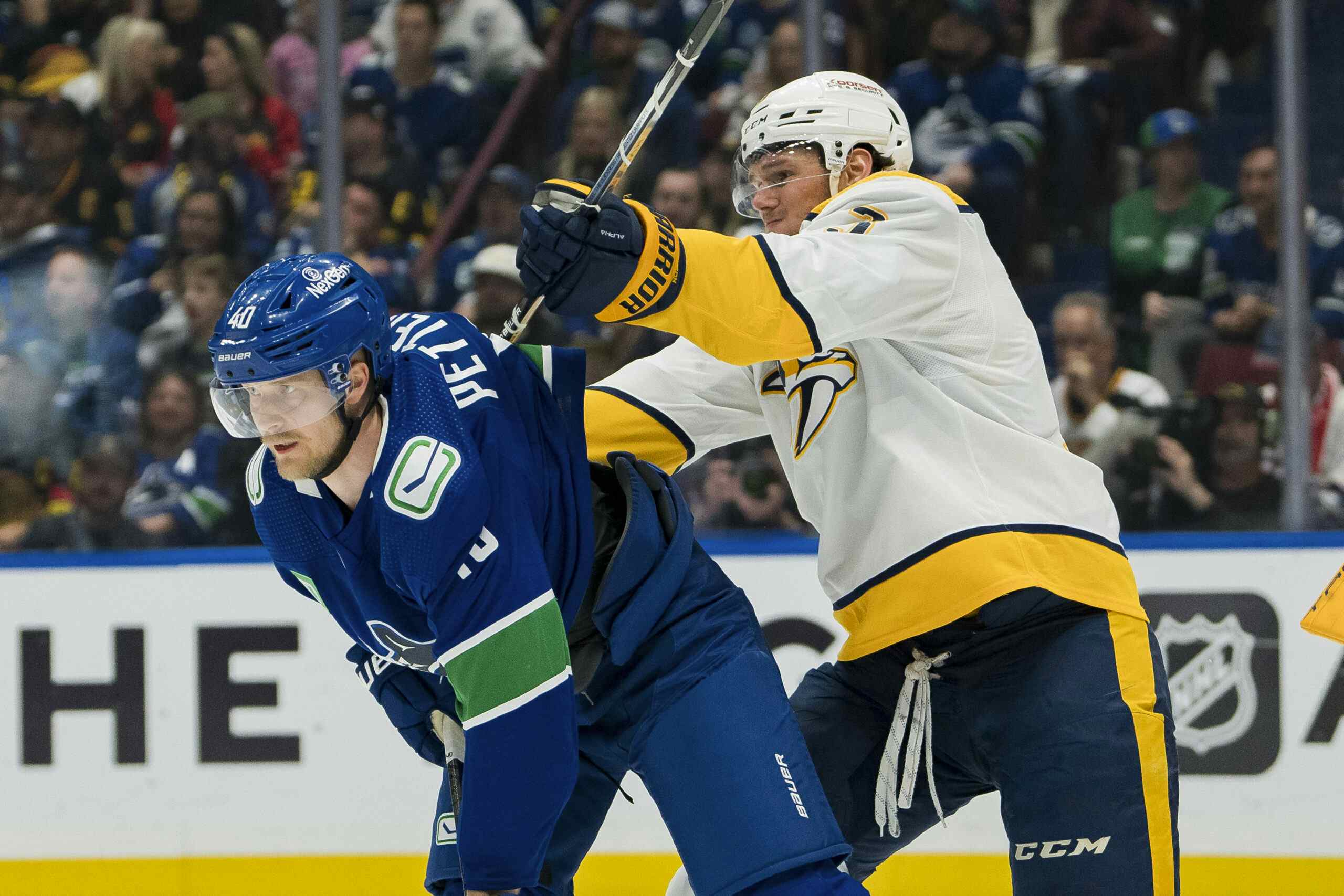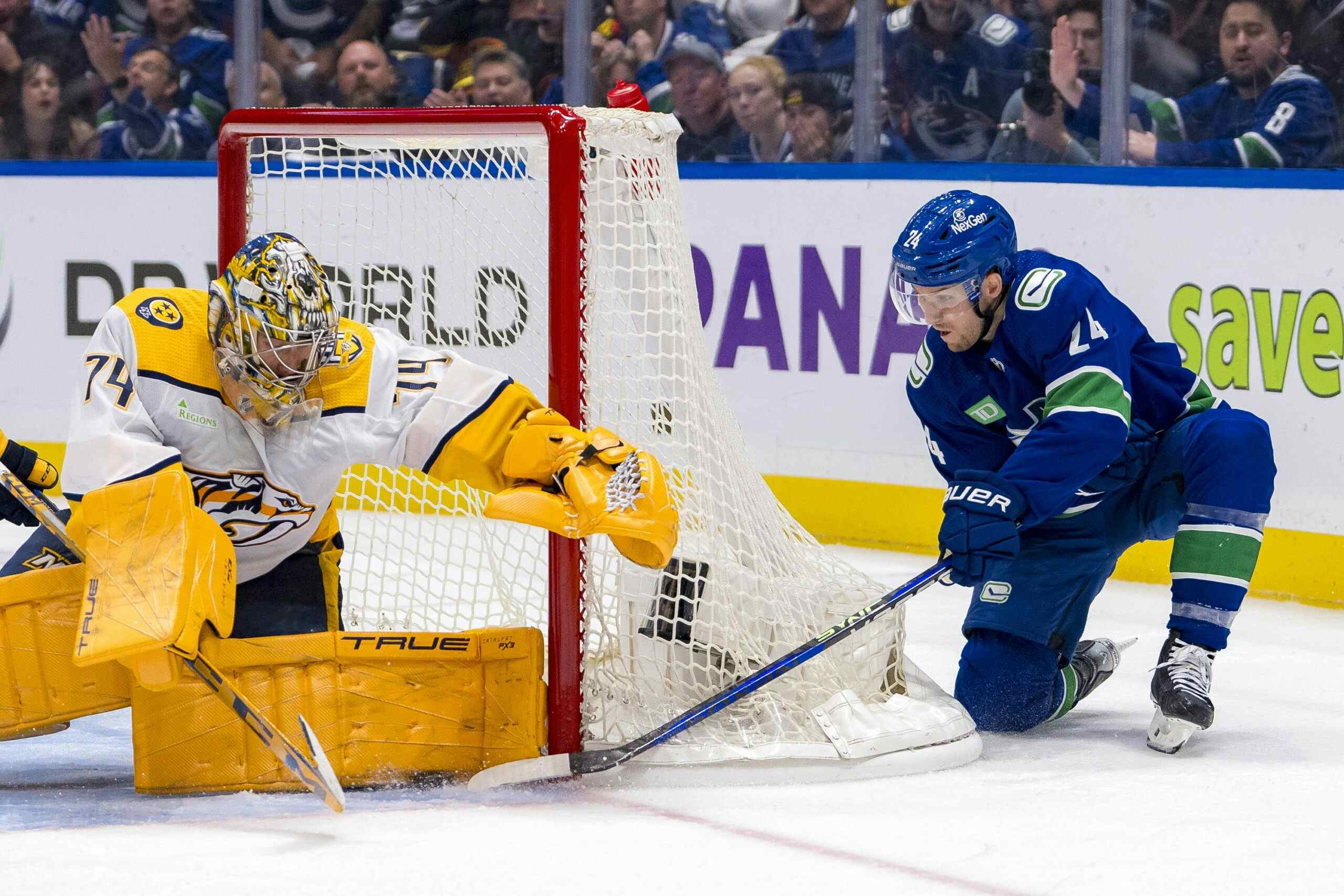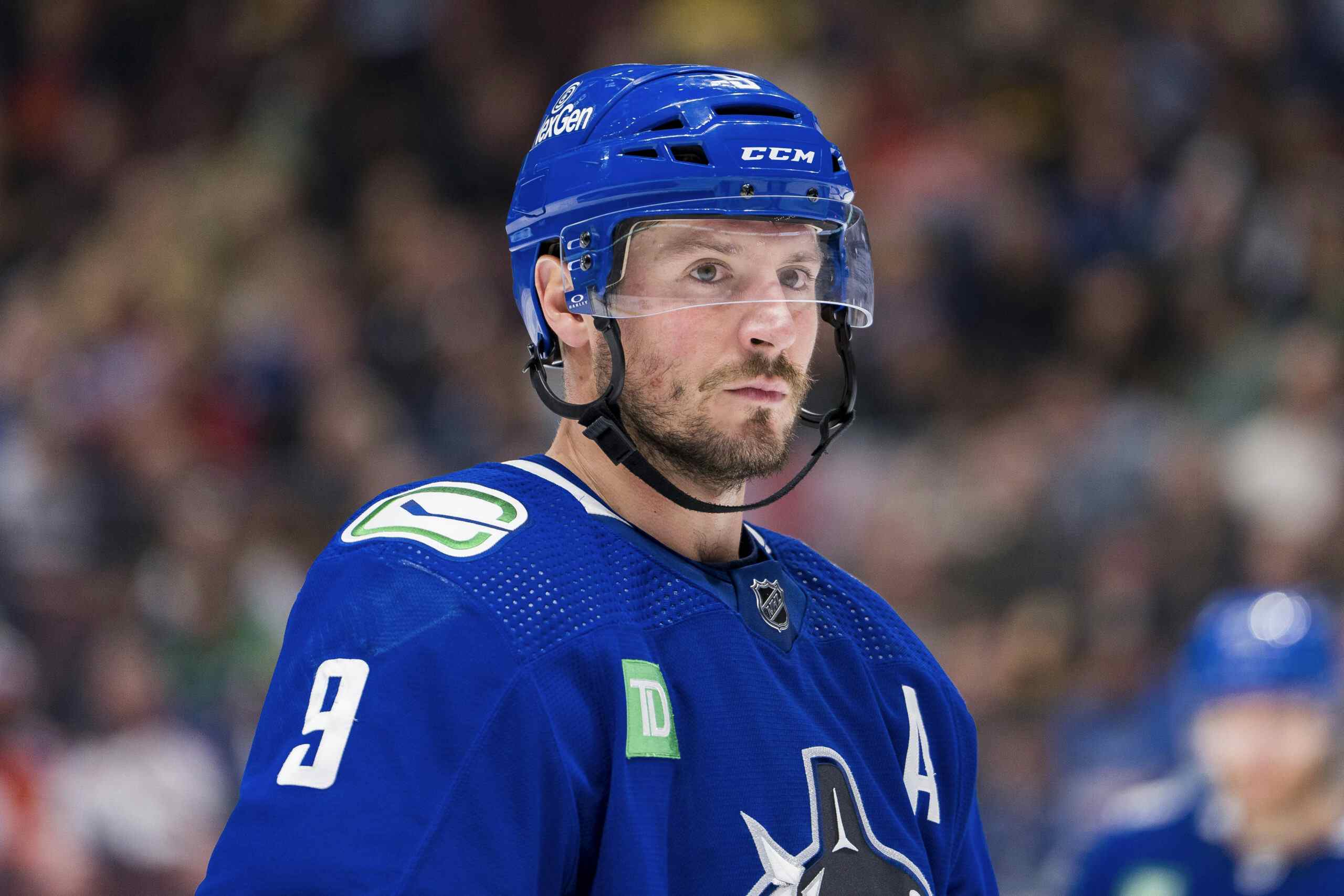How the NHL’s pause will benefit the Canucks’ young core long term
By Jason Jhutti
3 years agoThe start of the end of the 2019-2020 NHL season has officially begun.
When the world stopped due to Covid-19, so did the NHL. Players, coaches, management and fans have been dealing with watching reruns of old games on TV (we get it the Canucks lost in game seven to the flames in 2004), but now with a Return to Play plan and a new CBA, the hockey world will be attempting to conclude the 2019-2020 season.
Like Ken Griffey Jr’s picturesque swing, it was a beautiful sight when the Canucks took to the ice for training camp 2.0. Before camp, players who were out of town made the trek back early to quarantine for two weeks and do light skating.
Once training camp started, it was all smiles. The grin from ear to ear on the players’ faces were as if it was the first day back at school after the summer break, and they were seeing all their friends again. Most hadn’t seen each other in nearly four months since the pause in March.
Now, as we sit in the middle of the summer, a spot usually occupied by baseball at Nat Bailey Stadium in Vancouver, we wait and anticipate for hockey to return in roughly two weeks’ time during what would normally be the dog days of the offseason.
Having two off-seasons in one year will only benefit the Canucks moving forward. There aren’t any or many positives that have come from the virus. However, a young core eager to learn and get back on the ice could benefit greatly from the pause. Regardless of the outcome in the play-in series, this will be a great learning experience for the young team, especially for Brock Boeser, Quinn Hughes and Elias Pettersson, who have skated and trained during the pause.
Brock Boeser
Brock Boeser not only wrapped up Gossip Girl this past year, but he also finished his third regular season in a Canucks sweater. Boeser was drafted in 2015 and brought promise as soon as he stepped on the ice in his first game in his home state of Minnesota. The 23-year-old has had to deal with some unfortunate injuries and has not had an offseason when he wasn’t either rehabbing or thinking about his next contract.
In a pandemic, Boeser had the opportunity to spend time with family and friends while training. Players usually start to peak or physically mature around the age of 26 and last until 30, with this in mind, that gives Boeser three more years to gain strength and work on his game, which is usually done in the summer holidays. Now factor in another offseason where he can continue to improve and get faster, Boeser could reach his potential quicker.
Coming into camp 2.0, Boeser said on a zoom call that he was able to hit the ice train and workout back home in Minnesota. So far, in training camp, Boeser has been noticeable on the ice and seems like he has added fire under him.
Quinn Hughes
The 20-year-old rookie sensation had a dominating year and would be a lock to win the Calder Trophy if it wasn’t for Cale Makar. Hughes could become the greatest defenceman this franchise has ever seen, and if his first season was any indication of that, Canucks fans will be in for a treat for years to come. He led the league in scoring by a defenceman since the all-star break and was poised to break Canucks rookie records among the defence. The numbers that Hughes was producing are not only above every other defenceman in his draft class he also became just the third defenceman to lead all rookies in points in the last 80 years.
Having two offseasons to learn and get stronger, Hughes dubbed the pause a blessing in disguise. He feels more robust now than he did three or four months ago, and credits that rest has helped. Hughes has used the time in the pause to get stronger and worked on his (roller) skating and conditioning.
Hughes is something this market has never seen; a smooth-skating player who shimmies his way past the other team while always thinking two steps ahead of everyone else. Hughes posted ridiculous numbers and was the team’s best player on the backend, and this stoppage of play will only strengthen his skills moving forward.
Failed to load video.
Elias Pettersson
The most exciting player will now have had two off-seasons to work with before returning next year. Coming off his Calder campaign, there was no sophomore slump for Pettersson, who tallieded 66 points in 68 games. As the matchups got tougher, Pettersson found other ways to be effective — making use of his pinpoint accurate shot, Gretzky-esque vision, and silky-smooth mitts. Going forward, this pause, much like Boeser and Hughes, will only benefit the 21-year-old who had the chance to skate a few times in Sweden while honing and perfecting his craft.
Pettersson came into camp guns blazing, itching to play playoff hockey again. In an interview with Sportsnet’s Iain MacIntyre, Pettersson mentions how his postseason experience in Sweden will help him during his first NHL run.
“I’ve played playoff hockey before in Sweden. What I can tell from that is the games are tougher, you fight more for pucks, and everyone’s game raises. It’s just a tougher game all around. And I expect the same thing in the NHL because the Stanley Cup is one of the most famous trophies you can win, and everyone wants to win it.”
Regardless of the outcome, Pettersson will be a difference-maker this postseason and for years to come. He doesn’t lack the drive that young players tend to have, and works to get better in all aspects of his game, which happens in the offseason, for the most part.
Moving forward
The young core continues to grow and develop into what many hope is a Stanley Cup contender on the ice; however, players must put in the work during the offseason. Athletes, in general, hit their stride around 26, as mentioned before. To get stronger, players need the off-season to train and workout. Now factor in the pause in the schedule (second off-season) for Boeser and Hughes who did train during their time at home could hit their peak sooner than anticipated.
If the Canucks go all the way and win the Stanley Cup, the last possible date a game seven would be played is October 4th, and if the NHL wants to start the next regular season in December, meaning training camp would start middle of November. A month off for the teams that play in the finals. While if the Canucks lose to the Minnesota Wild, they will have three months off until next training camp and obviously, the longer you play, the shorter the off-season.
Having two off-seasons for the young core, especially the likes of Boeser and Hughes, and even Elias Pettersson, who all took the pause to workout and get better, will only work wonders for the organization.
All three of these guys have come out flying through the first week of camp and that’s only going to continue from here.
Recent articles from Jason Jhutti





